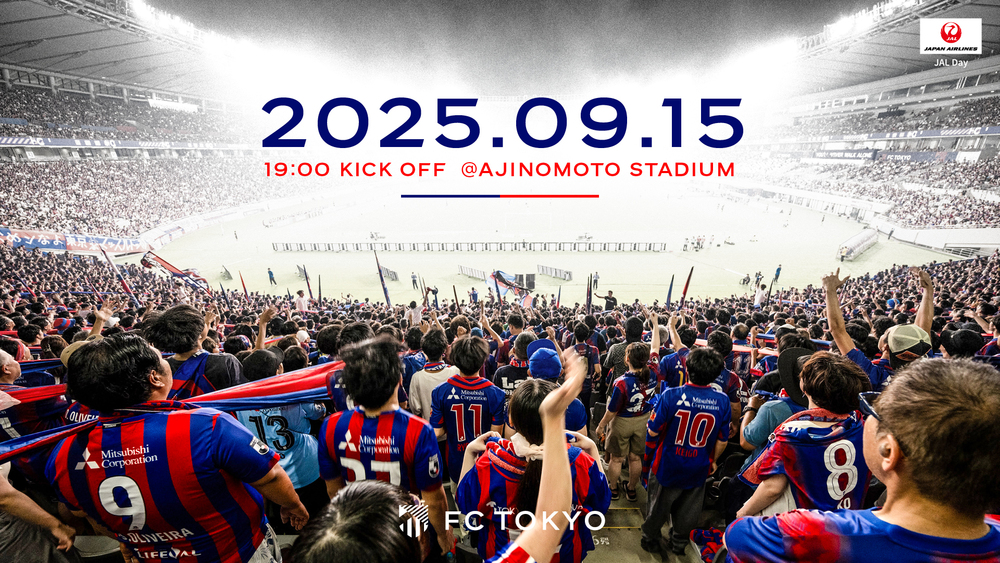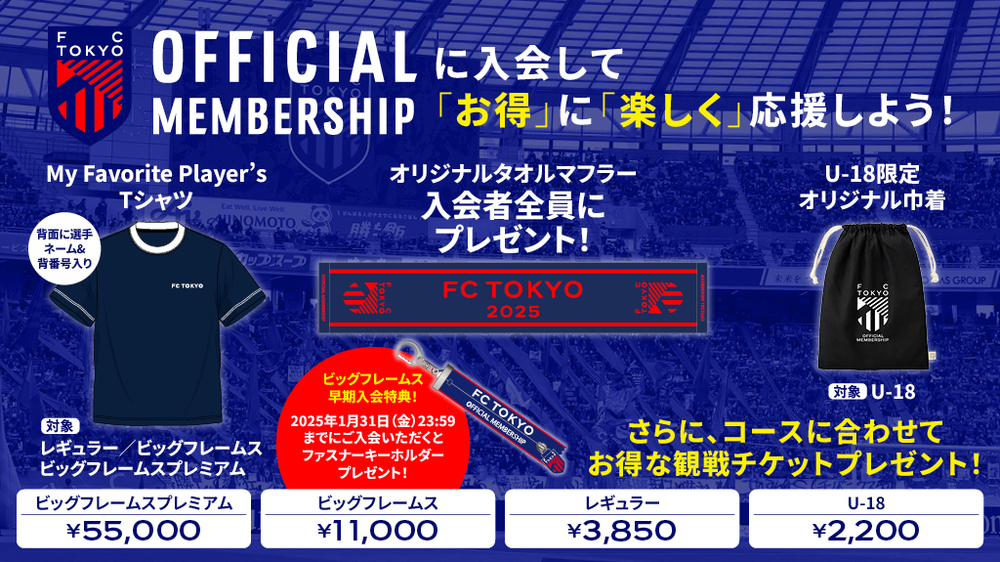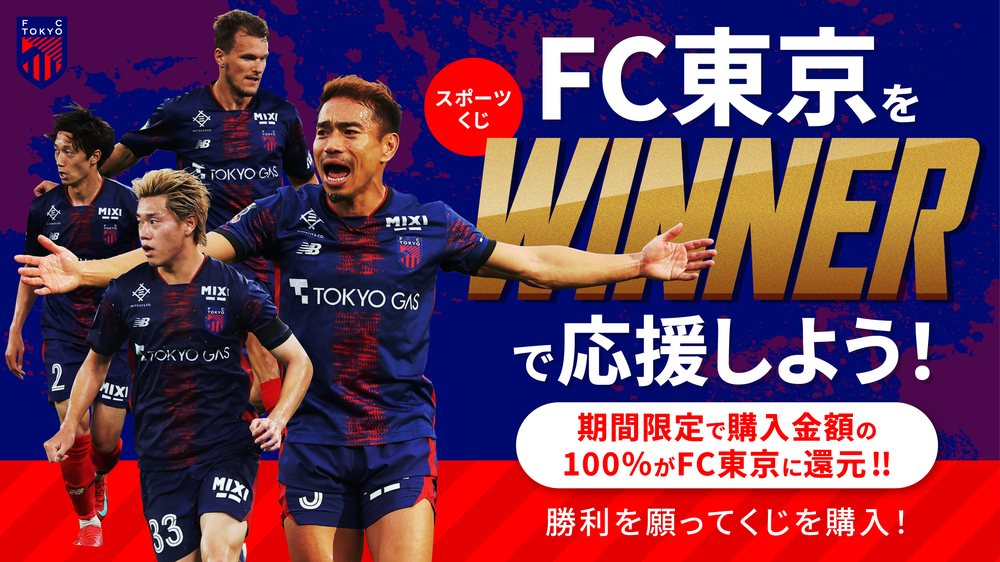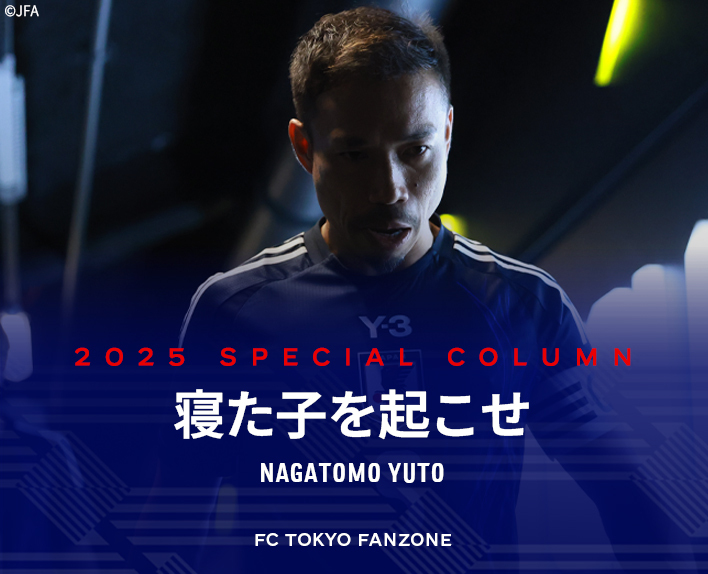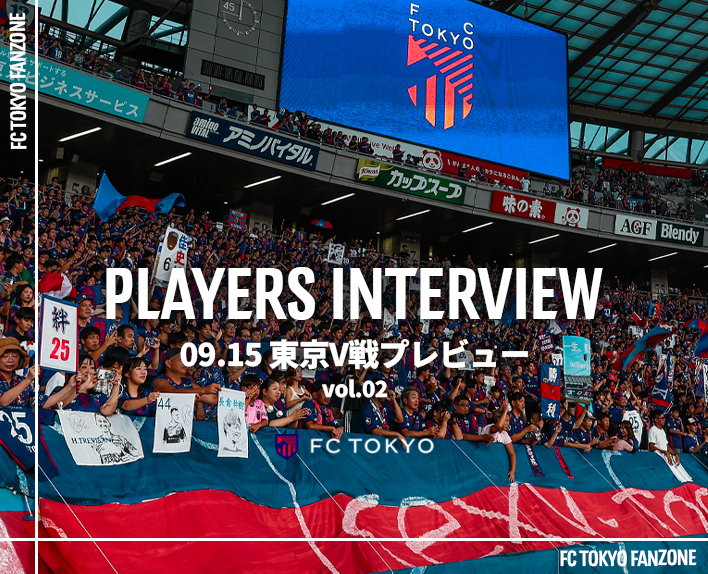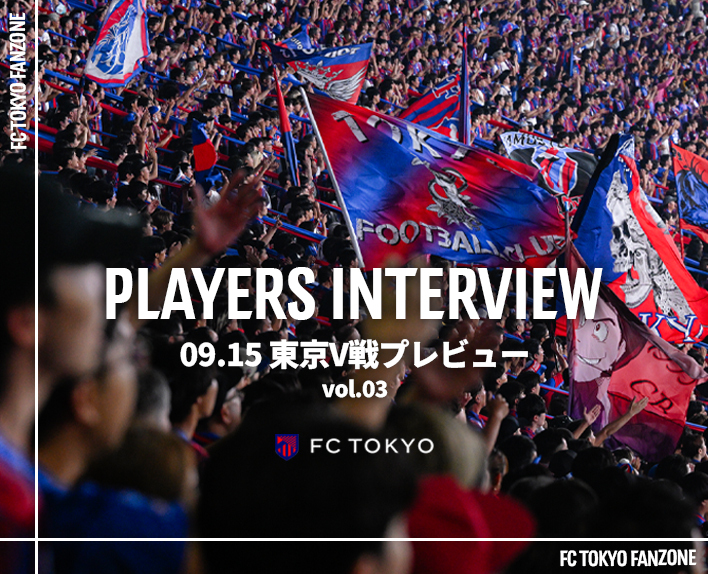From Aoaka to the world. As a simulation for the FIFA World Cup North and Central America tournament opening next June, the Japan national team undertook an expedition to the host country, the United States. On September 6, they faced the Mexico national team in Oakland on the West Coast, and on the 9th, after just two days, they played against the United States national team in Columbus in the Midwest. Yuto NAGATOMO, selected for Moriyasu Japan from Tokyo, was given his familiar number 5 jersey. He watched the match against Mexico from the bench, and in the game against the United States, he was entrusted with the captain's armband and named as a starting member playing as the left stopper in a three-back formation. Having shown remarkable good condition in Aoaka colors, what kind of feelings did NAGATOMO have as he faced the world? This time, we bring you an on-site report by Tomoo AOYAMA, who has been closely covering the Japan national team.
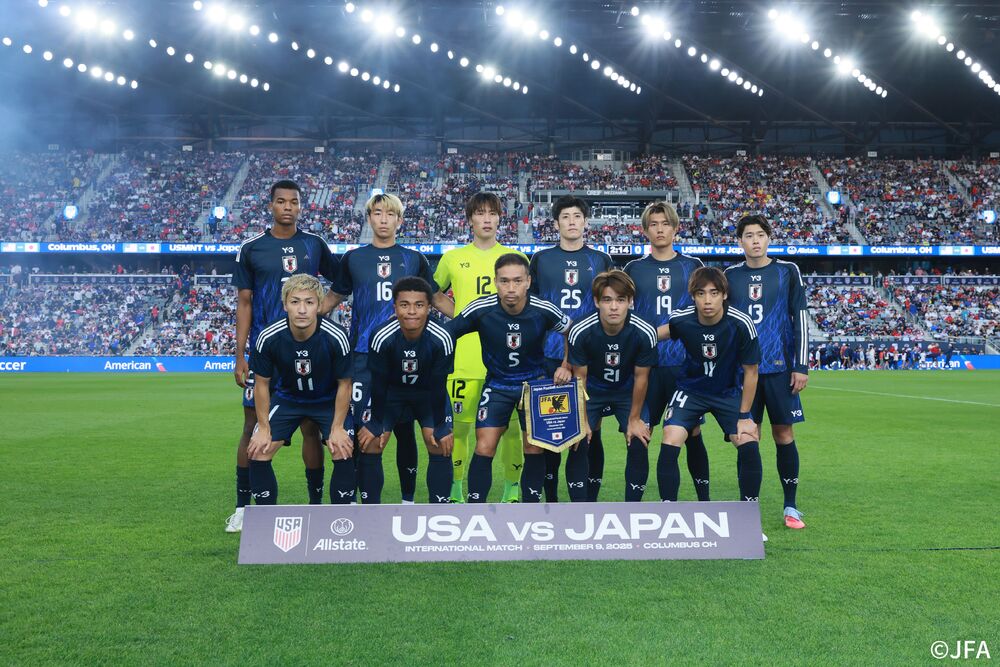
Determined to prove his own value, Yuto NAGATOMO approached the U.S. expedition with strong resolve. What he gained there was an intense sense of crisis and great motivation.
After concluding the battles against Asian teams that lasted about two and a half seasons, including the Asian final qualifiers and the East Asian E-1 Championship in July, Hajime MORIYASU's Japan team finally began challenging test matches against countries around the world, envisioning the main tournament. For the players, this also marked the start of a fierce survival race to secure a spot on the final roster.
It is a battle to prove not only how much one can contribute to the team but also the individual value of each player. Nagatomo, aiming for his fifth World Cup appearance, stood on American soil and once again expressed his thoughts about the tournament.
"Everyone has their own way of expressing themselves, but I have a passion that I cannot hide even if I try. I believe my will to survive is the strongest. I want to bring that to the forefront and firmly prove my value."
Watching from the bench during the first match against Mexico, he felt that the game, which ended in a goalless draw despite having the upper hand in content, was "a match where we lost 2 points if it had been the World Cup."
"We dominated from the first half and it was a winnable game. For about the first 30 minutes, it really looked like almost a half-court game, and being able to play such a match against Mexico is undoubtedly proof that our strength has improved. But I don't want to talk like that in the World Cup. If we don't capitalize on matches like this, we can't move up."
I don't want to have any regrets in the main tournament. That's why I want to clearly address the issues. At the same time, regarding the fact that I couldn't score a goal, I was envisioning the team's style of play and my own opportunities by thinking, "By distributing good balls from the players behind and improving the quality of crosses, we should get closer to scoring goals. We need to increase those chances."
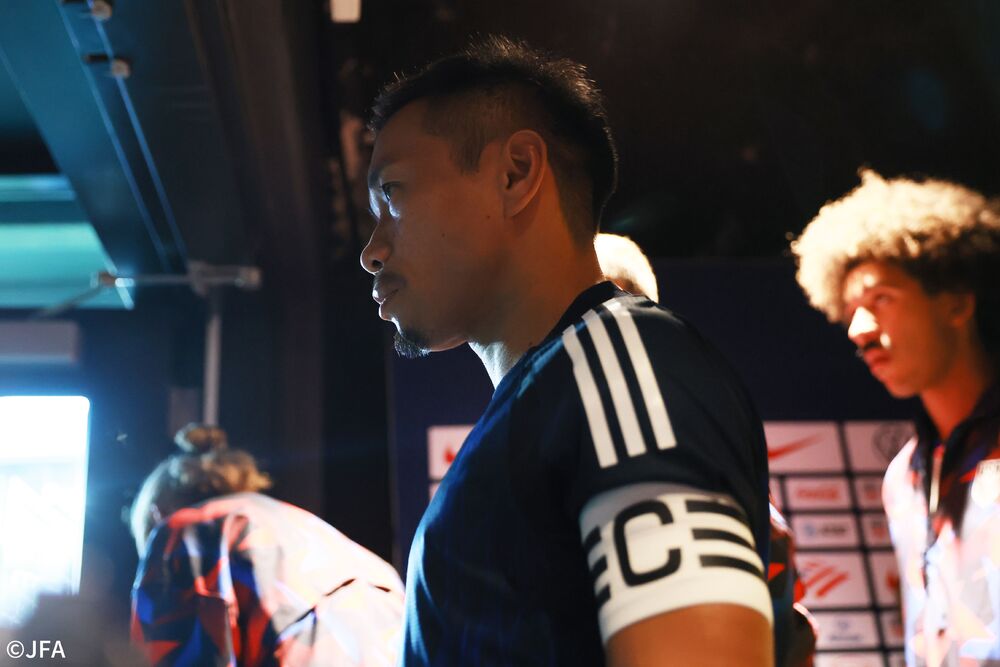
The match against the United States arrived. Wearing the captain's armband on his left arm, the player with number 5 led the way onto the pitch. His position was the left stopper in a three-back formation, the same as in the East Asian E-1 Football Championship in July. With a series of injuries among the Japan national team's center backs, he took the pitch in the position he had prepared for, thinking, "From the moment I saw this squad, I thought I'd be the left in the three-back."
As he had long said, "I'm returning to the Nagatomo of the Inter (Inter Milan) days," his condition was impeccable, and he played solidly even in an unfamiliar position. While being mindful of the issues that arose in the match against the Mexico national team as a team, he maintained balance by communicating with those around him and showed timely participation in attacks.
At the 9th minute of the first half, he made a large switch to the right side with his left foot, which then passed from Henry Kaiki Mochizuki on the right side to Junya Ito, becoming the starting point of a decisive chance. At the 21st minute, he supplied a cross with his right foot from a timely overlap, inviting Mochizuki's diving header and creating another big opportunity. Furthermore, at the 26th minute, he delivered a grounded vertical pass from the last line to the lone forward Koki OGAWA, and by pushing forward and receiving the ball again, he added thickness to the attack.
Even in defense, he showed sharp interceptions against the opponent’s vertical passes and powerfully repelled aerial duels. He also kept up in speed contests without losing and quickly snuffed out the seeds of counterattacks. Nagatomo himself reflected, "I didn’t really feel like I was being beaten in one-on-one situations or aerial battles," but then he faced a moment that he would deeply regret. It was around the 30th minute of the first half.
The United States took the lead when Christian Pulisic made a move from the left side and delivered a cross, and Alex Sendehjas struck a powerful direct volley with his left foot in the center. For Nagatomo, it was a situation where a goal was scored right in front of him. It was a momentary event, but it was also a scene that reminded him of the fear of international matches.
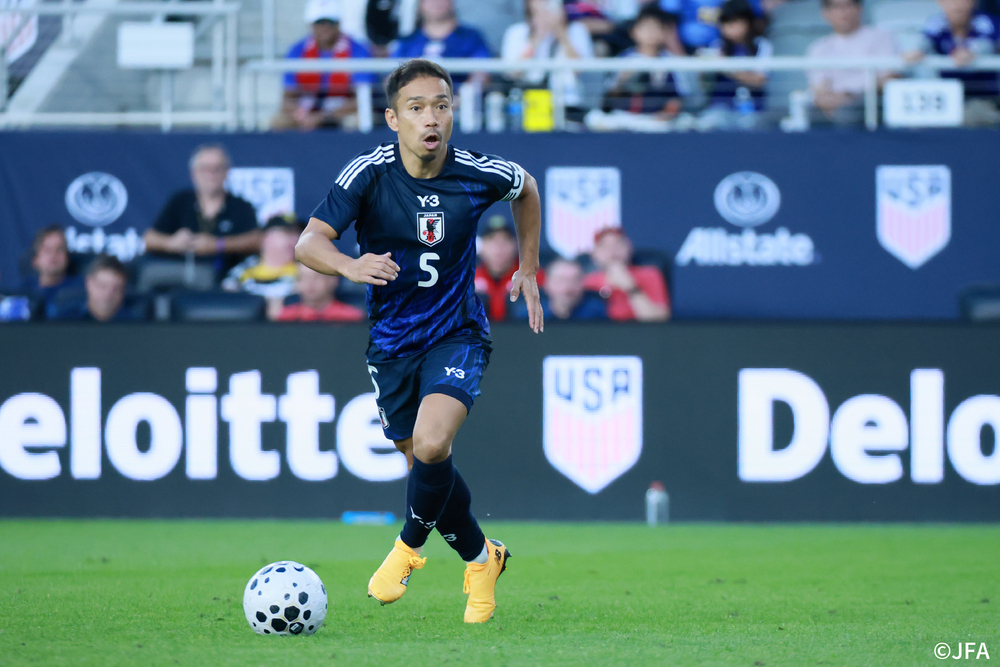
Nagatomo, possibly affected by a deep tackle he received in the first half that injured his right ankle, had to leave the pitch at halftime, trailing by one goal, substituted by Ayumu Seko. Nagatomo reflects on his performance in the match against the United States.
"Since I was involved in the conceded goal, I have to take it seriously and reflect on it. Including the gaps and distances like that, at this level, even a slight lapse leads to being punished. I could have closed down more, and at the very least, I could have limited the shooting angle better. If a shot is taken from that angle, the goalkeeper simply cannot stop it, so in that sense, it’s entirely my responsibility and my own weakness. Honestly, I have to do much, much more or it’s pointless."
Nagatomo continues on the reason why he was involved in the conceded goal.
"After all, the intensity and sense of speed were completely different from the J.League. The speed of closing down, decision-making, speed, and physical ability—all of these felt different from the J.League. I strongly felt the sense of crisis that if I don’t really stay aware, I will be left behind, so I have to be even stricter... Actually, not just a little stricter, I really have to be strict, or I won’t be able to become a member of the World Cup winning team. Along with this sense of crisis, I am also filled with great motivation."
Nagatomo, who said he wanted to "prove his existence" ahead of the match against the United States. Because he evaluated himself strictly, I deliberately asked him about the word "prove."
"No, no, no, I haven't proven anything at all. I have to be stricter. I had a painful experience inside myself. Unless I reach a level where I can truly dominate in the J.League, I can't be part of the World Cup squad. So, with a sense of crisis, I will work hard and intensely again in Tokyo. My motivation is seriously rising."
How consciously you can play on a daily basis. It all comes down to that. Whether in practice or in matches, with your current decisions and current play, can you compete in the World Cup? Can you stop world-class attackers? Can you make passes against the world’s best? How much you focus on each and every play and continue aiming higher will determine your fate. Physically and condition-wise, you are returning to the state you were in during your time at Inter. So now, it’s about how much you can awaken the senses needed to fight on the world stage and upgrade yourself.
Having once faced the world at the top level in Europe and shown a strong presence on the World Cup stage, he must regain that sharpened sense once again, and surpass his past self, or he will not reach the fifth grand stage he is risking his football career for. Ironically, the match against the United States held on the grounds of this tournament became a game that made him realize this.
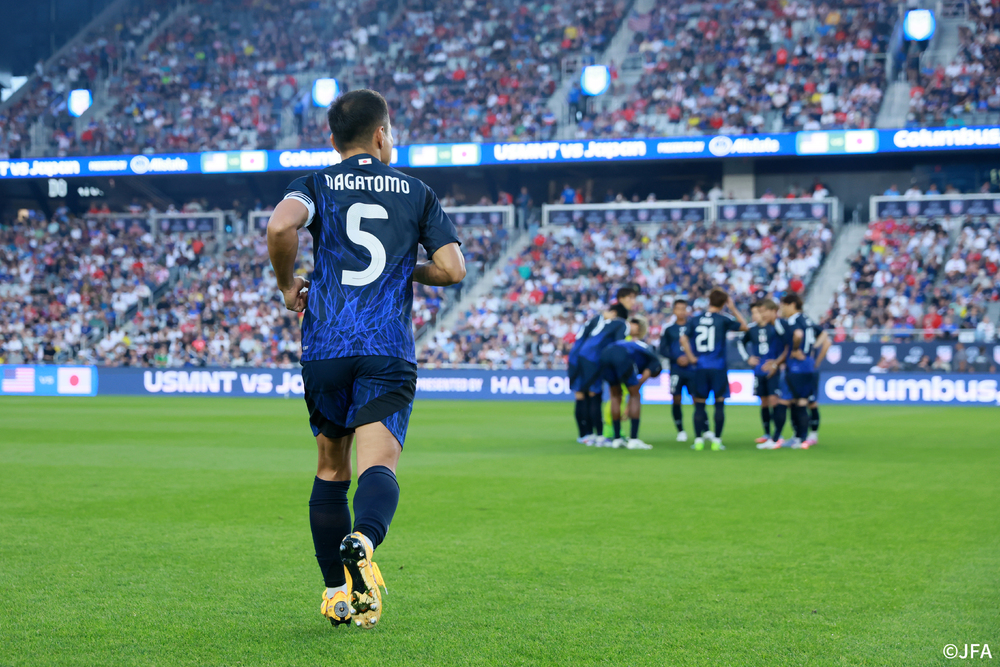
On September 12, after returning to his daily life in Kodaira following the U.S. expedition, Yuto NAGATOMO celebrated his 39th birthday. His first match back with the Red and Blue, carrying intense urgency and motivation, was against an opponent he absolutely could not afford to lose to—no, he had to win. After hearing his comment that "I must become an overwhelming presence in the J.League," we asked him about his determination for this crucial first match back after the U.S. game.
"It's right there. I will fight with everything I have toward that goal."
Yuto NAGATOMO has completely switched gears. After returning to Japan, he expressed on his own SNS, "I will definitely come back stronger," sharing his determination to set foot on American soil again in nine months. Adversity is precisely an opportunity. He has always shut out the noise this way. To prove his own worth and to elevate Tokyo to new heights. Now 39 years old, wearing the number 5 for the blue and red, he will awaken the sleeping giant within, revive his senses, and embark on a battle to pursue the "best performance in NAGATOMO history."
(Honorifics omitted in the text)
Text by Tomoo Aoyama
Photos by JFA
